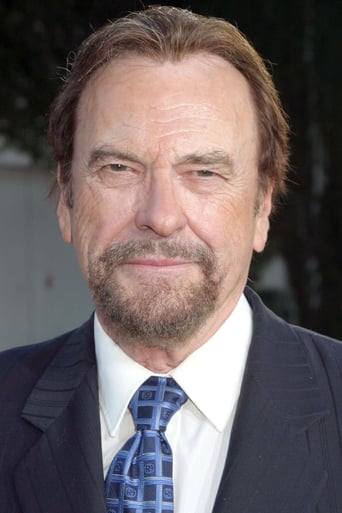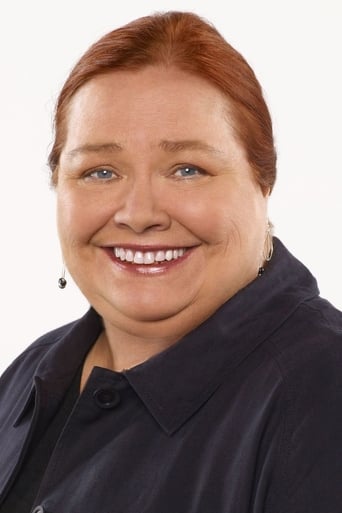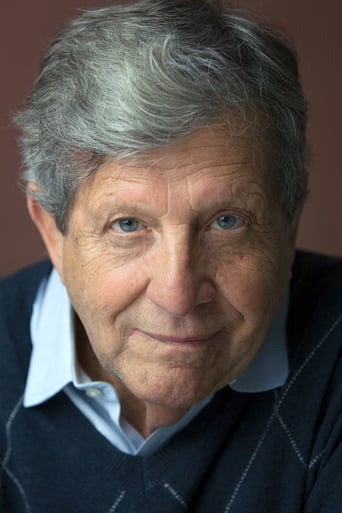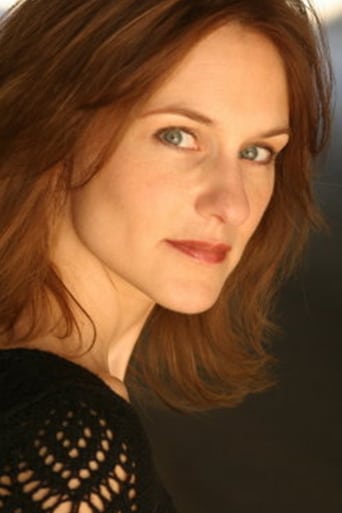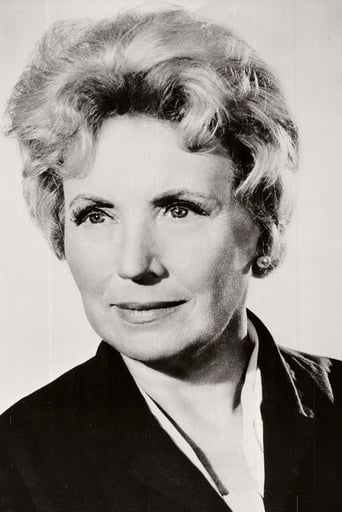dboard9
Heartland was in production about the same time as Michael Cimino's Heaven's Gate - Heartland cost a fraction to make but is 10 times the piece of film.Heaven's Gate was "the biggest and most expensive ($40 mil in 1980!) Hollywood flops of all time, its failure resulted in the sale of the United Artists studio to MGM" -imdb entry Heartland cost a few hundred thousand dollars and benefits from great writing, direction, photography and acting. It easily draws you into the beauty, joys, hardships and sorrow of pioneer life.It's sad that Hollywood sometimes would pour millions into turkeys (based on a director's single big hit) and neglect such a wonderful story.
Andy (film-critic)
I realize that living in the Western Plains of Wyoming during the 1900s was brutal, in fact, it probably is still brutal today, but was it monumental enough to transform into a seemingly "made-for-TV" movie? Also, women's rights were still budding in this nation during this time, so to find an independent woman determined to start fresh in this harsh territory, and still show the realism of the era … would it make for good viewing? Honestly, I don't know. I have thought about this film for the past two days, and I still can't seem to muster the strength to say that it was a horrible film, yet I can truthfully tell you that it wasn't the greatest I have ever seen. From several hodgepodge styles of acting, to two mismatched actors playing devoid of emotion character, to some of the most gruesome PG rated scenes to ever come out of late 70s cinema, it is hard to fully get a good grasp on Heartland. Was it good? Was it bad? That may be up for you to view and decide yourself, but until then, here are moments I enjoyed and desperately hated! This film continues to be a struggle in my mind because there were some very interesting scenes. Scenes where I wasn't sure what the director was doing or which direction he was headed, but somehow still seemed to work well as a whole. I thought the story as a whole was a very interesting, historical tale. I do not know much about living in Wyoming, especially during the early 1900s, so this film captured that image in my mind. The thought of very cold winters, no neighbors for miles upon miles, and this Polaroid-esquire view untouched by corporate America. It was refreshing to witness and sheer breathtaking to experience (though the television). There were scenes that really stood out in my mind, like the cattle-branding scene, the pig slaughtering scene, and the saddening homesteader that didn't survive their journey, that just brought a true sense of realism to this story. Director Richard Pearce did a great job of bringing the view of Wyoming to the viewers, but I am not sure he brought decent players to accompany the view.While I will constantly compliment the scenery of this film, I had trouble coping with the actors that seemingly walked on the set and read their lines from cards on the side. Rip Torn seemed out of place in his role as Clyde Stewart, a loner that somehow finds a connection with Conchata Ferrell's Elinore Randall. The two as actors have no chemistry at all. Their scenes that they share together are pointless and honestly void of any emotion. The pregnancy scene nearly had me in stitches because of the way these two "veteran" actors portrayed it. The brave Elinore does what she has to do to get the child out of her, while Clyde gives an approving nod when she is done. This is love? Was it supposed to be love? I don't know, I think with stronger characters we would have seen a stronger bond, but with Torn and Ferrell, it felt like two actors just playing their parts. Other scenes that just seemed to struggle in my mind were ones like when the frozen horse "knocks" on the door for food or shelter, the constantly fading and growing compassion that Clyde had for Elinore's daughter (I just didn't believe it), the lack of true winter struggle, and the entire land scene. The land scene especially because I needed more explanation on what Elinore was doing, why she was doing it, and why Clyde would build her a house if they were married! It was these simple events that if taken the time to explore, would have made for a stronger film.Overall, I will go middle of the road with this feature. There were definitely elements that should have been explored deeper, such as the relationship between these two strangers and the ultimate homesteading goals of Elinore, but they were countered with some beautiful scenes of our nation. These panoramic scenes which, in the span of 100 years, have changes from vast mountains to enormous skyscrapers. While there were some brilliant scenes of realism (starring cattle and pigs), I just felt as if we needed more. Depth was a key element lacking in this film, which was overshadowed by marginal acting and a diminishing story. Pearce could have dove deeper into this untapped world, but instead left open loopholes and clichéd Western characters. Ferrell carried her own, but Torn was completely miscast. Decent for a viewing, but will not be picked up again by me.Grade: ** out of *****
hbfreeb
This is one of the best films ever made. It is a realistic depiction of rural ranching life which was a big part of American History. The setting is 1906 Wyoming where life had not changed much since the previous century. The film keeps your interest without the added Hollywood myths. The whole family can see this movie and be intrigued about how life was like in America when it was mostly a rural nation. With this film, you will escape the present and witness the daily life of 100 years ago. In a beautiful, scenic environment you will see the hard physical work that was required to survive, as well as the constant worries and concerns of the elements and the market pressures that will make a difference between success or failure. See this movie and experience life as it was for most of our nation's history. This film is worth your time to see. My only question is - why aren't there more films like this one?
amanda-armstrong
When converting a book to film, it is generally a good idea to keep at least some of the author's intended tone or conveyed concepts, rather than ignoring the author altogether. While it is clear that the director had access to and went on the advice of Elinore Stewart's children, it is key to note that the children believed their mother to be a complete liar in regards to the good, enriching, strengthening experiences of homesteading her land. The book details her life on her and her husband's adjoining homesteads in the vast Wyoming frontier; she chronicles daily adventures with her numerous friends and acquaintances, though they lived dozens of miles apart. The film, however, takes a standard stance for the time it was made, portraying this woman's experience as harsh, unforgiving, and nearly pointless. Perhaps the director was bringing some of his Vietnam War experiences with him to this movie (as some film aficionados have said), but it seems to be a lousy excuse for taking all the joy and beauty of the book and twisting it into a bleak, odious landscape devoid of friends or hope. Don't waste your time with this movie; read the book instead.

